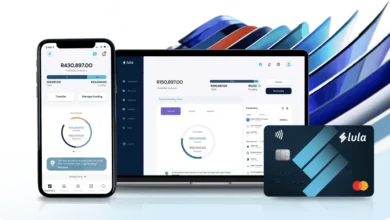10 Ways South African SMEs Can Enhance Cybersecurity

In an increasingly digital world, cybersecurity has become a paramount concern for businesses of all sizes, including small and medium-sized enterprises (SMEs). While large corporations often have dedicated resources to address cybersecurity threats, SMEs may face unique challenges due to limited budgets and technical expertise. However, there are several proactive measures that South African SMEs can take to enhance their cybersecurity posture and protect their sensitive data. Here are ten effective strategies:
1. Employee Training and Awareness
Invest in cybersecurity training and awareness programs for all employees to educate them about common threats such as phishing, malware, and social engineering attacks. Ensure that employees understand the importance of strong passwords, safe browsing habits, and the risks associated with sharing sensitive information.
2. Implement Strong Password Policies
Enforce strong password policies that require employees to use complex passwords and change them regularly. Consider implementing multi-factor authentication (MFA) to add an extra layer of security to user accounts, especially for accessing sensitive systems or data.
3. Keep Software and Systems Updated
Regularly update operating systems, software applications, and security patches to address known vulnerabilities and mitigate the risk of exploitation by cybercriminals. Consider enabling automatic updates wherever possible to ensure timely protection against emerging threats.
4. Secure Network Infrastructure
Implement firewalls, intrusion detection systems (IDS), and encryption protocols to secure your network infrastructure and prevent unauthorized access to sensitive data. Use virtual private networks (VPNs) for remote access to company resources, especially when employees are working from home or using public Wi-Fi networks.
5. Backup and Recovery Plans
Implement regular data backups to protect against data loss in the event of a cyberattack or system failure. Store backups securely, preferably in an off-site location or on cloud-based storage platforms. Develop and test a comprehensive data recovery plan to ensure business continuity in case of emergencies.
6. Secure Mobile Devices
Implement mobile device management (MDM) solutions to secure smartphones, tablets, and other mobile devices used for business purposes. Enforce encryption, passcode protection, and remote wipe capabilities to safeguard sensitive data in case of loss or theft.
7. Limit Access to Sensitive Information
Adopt the principle of least privilege by restricting access to sensitive data and systems only to authorized employees who need it to perform their job responsibilities. Regularly review user access permissions and revoke or modify access as needed to minimize the risk of insider threats.
8. Regular Security Audits and Assessments
Conduct regular cybersecurity audits and risk assessments to identify potential vulnerabilities and weaknesses in your IT infrastructure. Engage with cybersecurity experts or third-party vendors to perform penetration testing, vulnerability scanning, and security assessments to proactively address security gaps.
9. Incident Response Plan
Develop a comprehensive incident response plan that outlines procedures for detecting, responding to, and recovering from cybersecurity incidents. Establish a designated incident response team, define roles and responsibilities, and establish communication protocols for notifying stakeholders and authorities in the event of a data breach or cyberattack.
10. Stay Informed and Adapt
Stay informed about the latest cybersecurity threats, trends, and best practices by following industry news, attending cybersecurity conferences, and participating in relevant training and certification programs. Continuously assess and adapt your cybersecurity strategies to address evolving threats and business needs effectively.
Enhancing cybersecurity is a critical priority for South African SMEs to protect their sensitive data, preserve customer trust, and ensure business continuity. By implementing proactive cybersecurity measures, including employee training, strong password policies, software updates, network security, data backups, and incident response plans, SMEs can mitigate the risk of cyber threats and safeguard their business operations. Investing in cybersecurity is not only essential for protecting the integrity and confidentiality of business data but also for maintaining a competitive edge in today’s digital landscape.




